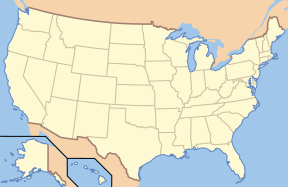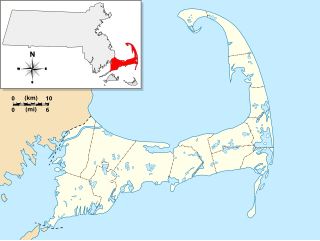User:Grolltech/Sandbox
This is my sandbox.
{{Superimpose}}
[edit]Cool! {{Superimpose}}, gotta remember that, might come in handy....
Trying to use {{Site plan}}:
Trying to use {{Superimpose}}:
Fun with {{Quote box2}}
[edit]{{Quote box2
| width = 31em
| title_bg = blue
| title_fnt = white
| title = Blues
| bgcolor = lightblue
| align = right
| halign = left
| quote = {{Lorem ipsum}}
}}{{clear}}
Lorem ipsum dolor sit amet, consectetur adipiscing elit, sed do eiusmod tempor incididunt ut labore et dolore magna aliqua. Ut enim ad minim veniam, quis nostrud exercitation ullamco laboris nisi ut aliquip ex ea commodo consequat. Duis aute irure dolor in reprehenderit in voluptate velit esse cillum dolore eu fugiat nulla pariatur. Excepteur sint occaecat cupidatat non proident, sunt in culpa qui officia deserunt mollit anim id est laborum.
{{Quote box2
| width = 18em
| bgcolor = AliceBlue
| align = left
| halign = left
| quote =[[Image:Century Mag Illuminated T Hobbema.png|20px]]was brillig, and the slithy toves<br /> Did gyre and gimble in the wabe:<br /> All mimsy were the borogoves,<br /> And the mome raths outgrabe.
}}
was brillig, and the slithy toves
Did gyre and gimble in the wabe:
All mimsy were the borogoves,
And the mome raths outgrabe.
{{Wide image}}
[edit]{{wide image|Woodhenge.jpg|920px|alt=Panorama view of the complete Woodhenge site.|The complete site}} produces:
Wide cladogram (not yet templated)
[edit]Note: this is a bit of a hybrid between {{Wide image}} and {{Wide template}}, except the latter does not seem to only work with static templates that take no parameters! Not terribly useful! I need to use this "auto-scrollbar technique" with large cladograms, the like this one:
The cladogram is a tool for visualizing and comparing the evolutionary relationships between taxons, and is read left-to-right as if on a timeline. The following cladogram illustrates the relationship between the tunas and the other tribes of the family Scombridae. For example, the cladogram illustrates that the skipjack tuna is more closely related to Thunnus than is the slender tuna, and that the next nearest relatives to the tunas are the bonitos of the Sardini tribe.[1]
Original cladogram (obsolete)
| ||||||||||||||||||||||||
|---|---|---|---|---|---|---|---|---|---|---|---|---|---|---|---|---|---|---|---|---|---|---|---|---|
The above cladogram is generated inside of a couple of custom <nowiki>
<div class="thumb" style="margin: 5px; clear: both; width: 98%;">
<div class="overflowbugx" style="overflow:auto;border=1">
{{cladogram|title=The Tuna (Thunnini tribe) within the Family Scombridae
|align=left |caption=Cladogram: Tunas are members of the Thunnini tribe (bottom-right in image above), one of four tribes in the Family Scombridae.<ref name=Graham2004>{{cite journal
|last=Graham|first=Jeffrey B.|coauthors=Dickson, Kathryn A.|title=Tuna Comparative Physiology|journal=The Journal of Experimental Biology
|year=2004|volume=207|pages=4015–4024|doi=10.1242/ jeb.01267|accessdate=20 September 2012 |url=http://jeb.biologists.org/content/207/23/4015.full.pdf+html |format=PDF}}</ref>
|cladogram={{clade| style=font-size:78%;line-height:92%;width:{{{width|920}}}px;<!-- OBSOLETE -->
|label1=fam. [[Scombridae]]
|1={{clade
|label1= subfam.<br />[[Gasterochismatinae]]
|1= [[Butterfly kingfish]]<br /> (1 genus)
|label2= subfam. [[Scombrinae]]<!-- OBSOLETE -->
|2={{clade
|label1=tribe<br /> ''[[Scombrini]]''
|1= [[Mackerel]]s<br /> (2 genera)
|2={{clade
|label1=tribe<br /> ''[[Scomberomorini]]''
|1= [[Spanish Mackerel]]s<br /> (3 genera)
|2={{clade
|label1=tribe<br /> ''[[Sardini]]''
|1= [[Bonito]]s<br /> (4 genera)
|label2= {{black|tribe '''Thunnini (Tunas)'''}} <!-- OBSOLETE -->
|2={{clade | thickness=3
|1= {{green|'''''[[Allothunnus]]'', slender tunas'''}}
|2={{clade | thickness=3
|1= {{green|'''''[[Auxis]]'', frigate tunas'''}}
|2={{clade | thickness=3
|1= {{green|'''''[[Euthynnus]]'', ''little tunas'''}}
|2={{clade | thickness=3
|label1= {{green|'''''[[Katsuwonus]]'', skipjack tunas'''}}
|1=
|label2= {{green|'''''[[Thunnus]]'', true tunas'''}} <!-- OBSOLETE -->
|2={{clade | thickness=3
|label1= {{green|subgenus '''''Thunnus'''''}}
|1= {{green|'''bluefin group'''}}
|label2= {{green|subgenus '''''Neothunnus'''''}}
|2= {{green|'''yellowfin group'''}}
}}<!-- OBSOLETE -->
}}
}}
}}
}}
}}
}}
}}
}}
}}
}}
</div></div>
{{clear}}
</nowiki>
|
New and Improved cladogram
| ||||||||||||||||||||||||||||||||||||||||||||||||||||||||||||||||||||||||||||||||||||||
|---|---|---|---|---|---|---|---|---|---|---|---|---|---|---|---|---|---|---|---|---|---|---|---|---|---|---|---|---|---|---|---|---|---|---|---|---|---|---|---|---|---|---|---|---|---|---|---|---|---|---|---|---|---|---|---|---|---|---|---|---|---|---|---|---|---|---|---|---|---|---|---|---|---|---|---|---|---|---|---|---|---|---|---|---|---|---|
|
{{Clarify}}
[edit]Evidence of some right whales in Greenland water were collected recently[2] and it is not known whether these animals are a remnant population from the eastern Atlantic ocean or from the western stock.[3] Any right whales had not been confirmed off Greenland for around 200 years.[clarification needed]
Language tags
[edit]Example: Thunnus is the Latin form of the Ancient Greek: θύννος, romanized: (thýnnos), lit. 'tunny-fish' – which is in turn derived from θύνω (thynō), "to rush; to dart".[4]
Code: ''{{lang|la|Thunnus}}'' is the [[Middle Latin]] form of the {{langx|grc|θύννος|(thýnnos)|tunny-fish}} – which is in turn derived from {{lang|grc|θύνω}} {{transl|grc|(''thynō'')}}, "to rush; to dart".
References
[edit]- ^ a b c Graham, Jeffrey B. (2004). "Tuna Comparative Physiology" (PDF). The Journal of Experimental Biology. 207: 4015–4024. doi:10.1242/jeb.01267. Retrieved 20 September 2012.
{{cite journal}}: Unknown parameter|coauthors=ignored (|author=suggested) (help); zero width space character in|doi=at position 9 (help) Cite error: The named reference "Graham2004" was defined multiple times with different content (see the help page). - ^ a b National Oceanic and Atmospheric Administration (May 20, 2009). "NOAA Expedition Hears Endangered North Atlantic Right Whales off Greenland".
- ^ a b Newman, Dennis (May 20, 2009). "OSU Researchers Discover 'Extinct' Whales". Natural Oregon.
- ^ Liddell, H.G.; Scott, R.; Whiton, J.M. (1887). A lexicon abridged from Liddell and Scott's Greek-English lexicon (17th ed.). Ginn & Co.




